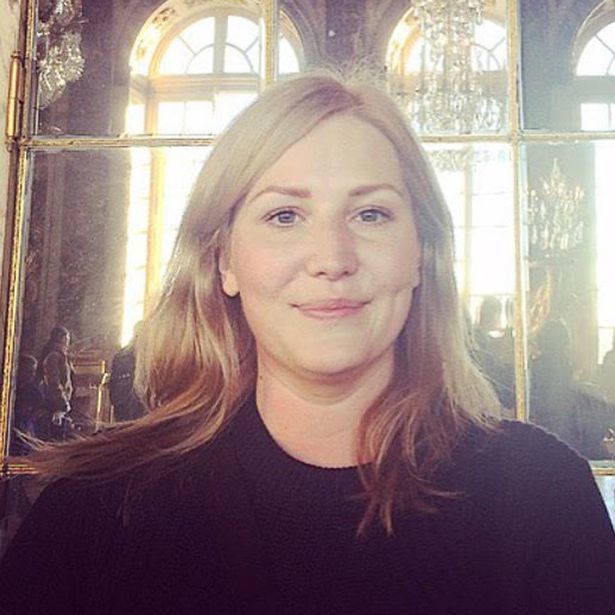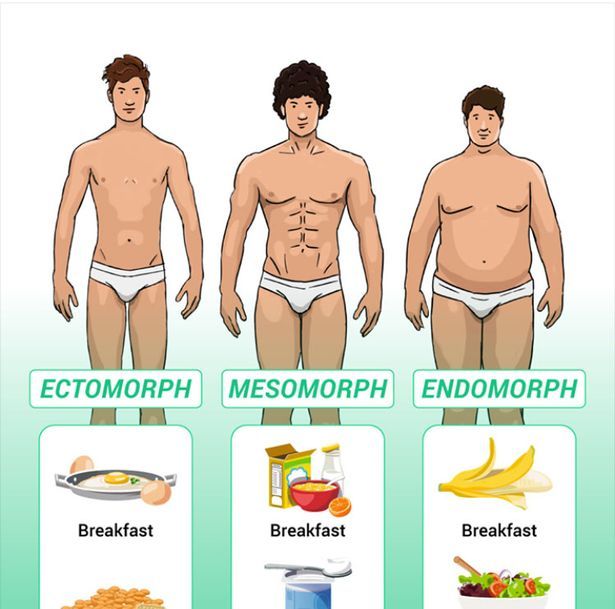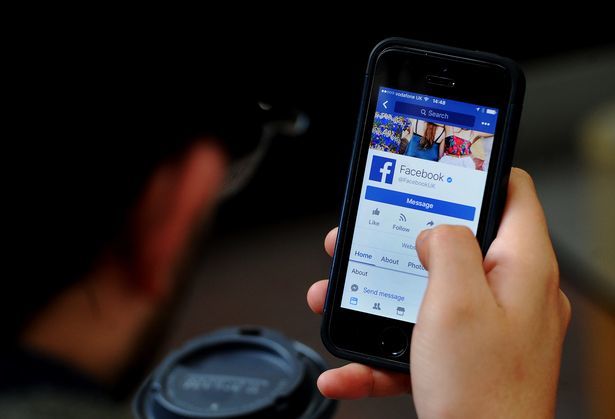
People with anorexia and bulimia 'bombarded with dangerous dieting adverts'
People battling anorexia and bulimia are being bombarded with "dangerous" adverts for diet supplements and weight loss apps on social media, users have warned.
Platforms including Facebook and Instagram are facing calls to tackle cynical companies who target those with eating disorders.
Daniel Magson, who says he is lucky to be alive after his own bulimia battle, told The Mirror he was stunned by adverts on Facebook, Instagram and YouTube after he wrote about his experience.
These included adverts for diets, weight loss pills and fitness apps - which he said forced him off social media for fear of triggering his condition.
His experience was echoed by Holly Creed, who has battled an eating disorder since she was a teenager and said she was "inundated" with weight loss and body-tuning app adverts.
Daniel, who chairs charity Anorexia & Bulimia Care, has called on the government to bring in safeguards which can save lives after keeping an extensive record of adverts which appeared for him.
The 28-year-old, who first developed bulimia when he was 16, said: "I know the bulimia could come back at any point, I need to protect myself.
 Holly Creed said she was inundated with adverts after searching for information about eating disorders
Holly Creed said she was inundated with adverts after searching for information about eating disorders
"I'm very careful who I follow on social media, I never look up diets, I keep myself away from anything that I'm going to find triggering."
He has campaigned for better support for people with eating disorders after his bulimia was dismissed as "puberty" and "stress" as a teenager.
After he started speaking out online, he noticed a change in the adverts appearing on his social media feeds.
Daniel said: "As soon as that happened all my adverts started to change - I was getting more adverts on Facebook and YouTube for weight loss supplements, diets and body enhancing apps.
"I'm fighting so hard, but these adverts are triggering me. I started over-exercising, I ended up going off social media because I was falling back and I couldn't control it."
 Daniel, who developed bulimia when he was 16, has called for better protection for people with eating disorders
Daniel, who developed bulimia when he was 16, has called for better protection for people with eating disorders
 He said he was stunned when adverts started appearing on his social media pages after he posted about his condition
He said he was stunned when adverts started appearing on his social media pages after he posted about his condition
Daniel, who works in digital fundraising, said he believes companies are consciously identifying people with eating disorders.
"These advertisers are complete monsters," he said. "It's really dangerous."
"We've had a lot of people who have reached out and they've seen these ads and it's impacted them, they say they feel like they've been exploited."
He has launched a petition calling for better safeguards to protect people with eating disorders.
Daniel wrote: "Companies are using my bulimia to sell products to me, I get adverts about so-called ‘body enhancing’ and weight loss apps, weightless supplements, teeth treatment, baldness treatment, 'gain money by losing weight' adverts, body shaping products, and much more.
"Companies are using this technique to deliberately target vulnerable people who search for help online, or speak out about their eating disorders and body image online."
 One of the many adverts that appeared on Daniel's social media feeds
One of the many adverts that appeared on Daniel's social media feeds
His experience has been echoed by 34-year-old Holly, who said her battle with an eating disorder in the early 2000s had left her suicidally depressed.
She told The Mirror: "If I'm looking online for eating disorder support or body positive exercise tips for example, I'll find I'm inundated with weight loss or body-tuning app ads.
"Just this morning, I was looking at some articles on Intuitive Eating, which is particularly of interest to those who have suffered disordered eating, and within those same articles I was being shown ads promoting Keto diet plans which promised to, 'Force your body into ketosis'.
"I think it's pretty clear how dangerous it is to show someone who has been medically treated for how harshly they restricted their diet, a targeted advert which promises them their life will improve if they restrict their diet."
Holly added: "I'm a 34 year old woman who has had many years since my ED treatment to learn how to handle life in recovery, and I still find this very triggering.
"I truly dread to think how my vulnerable teenage self would have coped, or failed to cope, with being targeted like this."
Holly said she is "cautiously optimistic" that changes can be made, and welcomed being able to report triggering adverts on Instagram relating to eating disorders.
But she warned there is a long way to go.
 The tragic death of Nikki Grahame has thrown the issue into sharp focus
The tragic death of Nikki Grahame has thrown the issue into sharp focus
"Suffering from, and recovering from, eating disorders already makes normal life difficult, and the extra hurdle which targeted advertising throws in your path to getting help or avoiding relapse is a very cruel and unnecessary obstacle," she said.
NHS data shows huge rises in waiting times for treatment, with a 128 per cent increase in the number of children and young people waiting for routine treatment compared with last year.
The tragic death of former Big Brother star Nikki Grahame, who had battled anorexia for several years, has put the issue in sharp focus amid calls for better support.
Daniel said: "I've seen people lose their lives, it's common knowledge that eating disorders have the highest mortality rate of people with psychiatric conditions."
In the UK 1.6 million people have been diagnosed with eating disorders, while the Department of Health estimates the number of people affected could be as high as four million.
Daniel was 16 when he developed bulimia. He was struggling with his sexuality, and both parents were diagnosed with cancer.
 Daniel said unethical advertising could be triggering to people with eating disorders
Daniel said unethical advertising could be triggering to people with eating disorders
"Because I was gay, people around me were telling me it was wrong, and I felt like it should be me that was ill," he said.
When his mum tried to get help for his eating disorder, he said it was dismissed by his GP as puberty and stress.
"It spiralled at university," Daniel said. "I was at the point where I'd be throwing up all day, it felt like there was no hope."
He began researching bulimia himself, but found getting support was hugely difficult, with long waits for counselling - which continue today.
"Therapy saved me," he said. "I feel lucky that I survived, but I should never feel lucky to have survived something that's so detrimental to my mental health."
 Facebook says it does allow content which promotes eating disorders
Facebook says it does allow content which promotes eating disorders
A Facebook spokesman told The Mirror: “Mental health and issues around eating disorders are extremely complex, and no one at Facebook or Instagram takes them lightly.
"We’ve never allowed content that promotes or encourages eating disorders and we remove it as soon as we become aware of it. This includes ads that attempt to generate negative self-perception in order to promote diet, weight loss or other health-related products.
"We regularly consult with experts from around the world, including Beat in the UK, to make sure our policies strike the right balance between protecting people from harmful content, while allowing people to share experiences of mental health.”
Google, meanwhile, says it has longstanding personalised ad policies preventing advertisers from targeting people on the basis of personal health properties.
The company says it does not allow adverts which relate to personal hardships, and companies cannot use health conditions to target users.
This includes physical and mental health conditions, it says.










